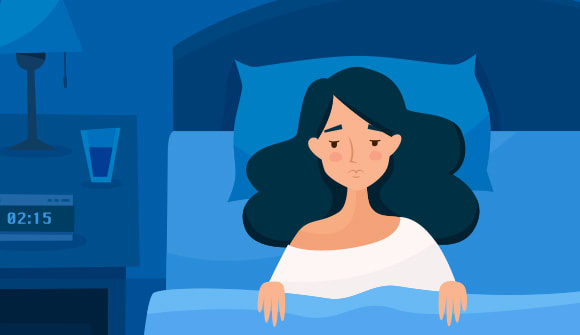A thief in the night
Why sleep matters for health.
Article Author: Johnny Woodhouse
Article Date:

Guest columnist Stephanie Mullis, LMHC, is a licensed mental health counselor with Baptist Behavioral Health.
“A good laugh and a long sleep are the best cures in the doctor’s book!” – Irish proverb.
Many of us sacrifice sleep for other things and sometimes don’t realize how sleep-deprived we really are. I always ask my patients about their sleep, and they usually giggle as if sleep is a luxury they simply cannot afford.
Health risks of sleep loss
There are literally volumes of research on the importance of sleep and the physical, mental and emotional health risks associated with sleep deprivation.
Among them are:
- Heart disease
- Heart attack and heart failure
- Irregular heartbeat
- High blood pressure
- Stroke
- Diabetes
According to 2007 British study, lack of sleep doubled the risk of death from a cardiovascular event. Many of these issues stem from the fact that lack of sleep increases hunger, which leads to the craving of high-fat, high-carbohydrate food. This can eventually lead to weight gain and obesity.
Besides the serious medical risks associated with lack of sleep, there are other potential mental health and emotional risks associated with chronic sleep loss, from general irritability to depression and anxiety. Lack of proper sleep is proven to alter our learning and problem-solving and can also impair our ability to make sound and reasonable judgments.
Sleep and mental well-being
Many people have convinced themselves they only need six or fewer hours of sleep a night. However, increased depression and anxiety are strongly associated with decreased sleep, according to a study by the National Sleep Foundation.
Insomnia can exacerbate depression and lead to increased irritability and overreaction to everyday circumstances and situations.
Tips for better sleep
We all need more sleep, but how do we get it? Here are a few suggestions:
- Decrease your caffeine intake. Stop caffeine consumption by approximately 2-3 pm.
- Eliminate long naps. A short, 20-minute catnap can recharge your batteries and won’t confuse your internal clock (circadian rhythm).
- Keep consistent sleep/wake times. Irregular sleep patterns can alter your circadian rhythm and melatonin levels, signaling your brain to sleep. Keep your pattern, especially on the weekends.
- Don’t drink alcohol before bed. It's known to cause or increase sleep apnea, snoring and disruptive sleep.
- Create a calm, quiet and dark bedroom with comfortable bedding and an optimal temperature of 70 degrees.
- Develop a nighttime routine to improve sleep. Set a digital curfew for when you turn off all electronic devices.
Prioritize your sleep today!
If you are having trouble sleeping, contact your primary care doctor, who may recommend a sleep study. If you need a provider, call 904.202.4YOU (4968) or fill out the appointment request form.



